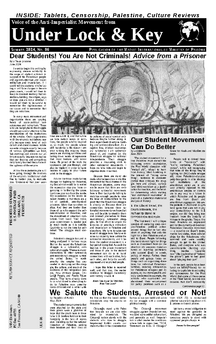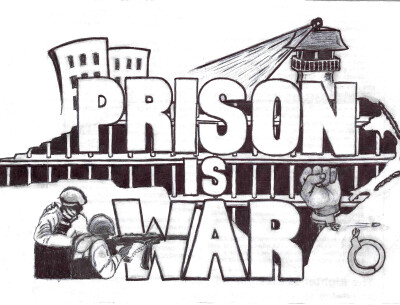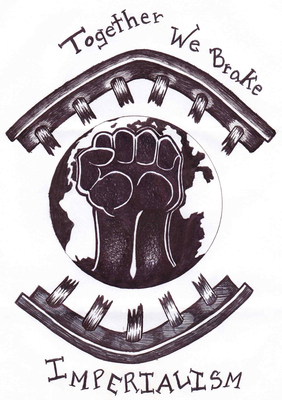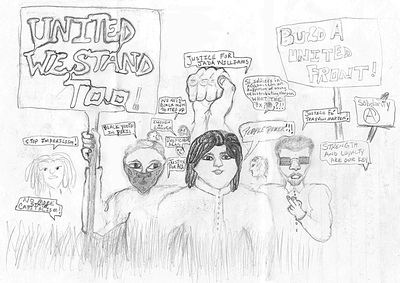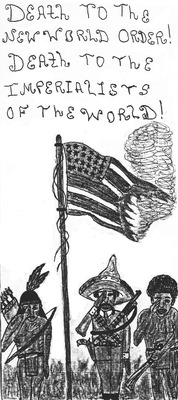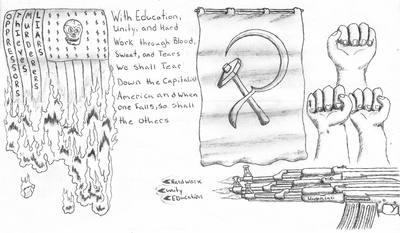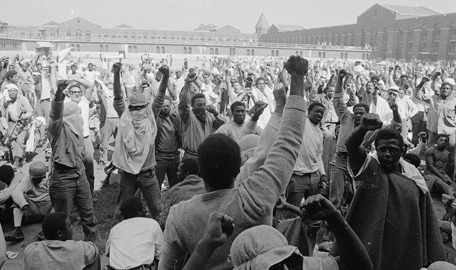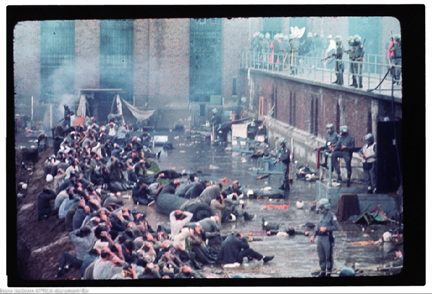
ULK 86: Updates & Elections
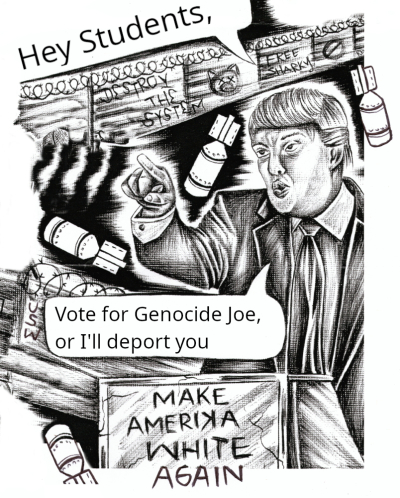
We just wrapped up our Fourth of You-Lie annual fundraiser. The results so far aren’t great. We’ve only received about a third of the number of donations we got from comrades inside for all of 2023, and less than a third in the amount received. That means we need to get twice as many donations in the next 6 months as we got in the first 6 months of this year to maintain where we were. And ideally, we want to be increasing the percent of funding that comes from donations from prisoners. The amount of donations we receive from prisoners is one way we measure mass support for our work and whether we should keep doing it.
Our education programs continue to develop. We’ve mailed out the first group response to our University of Maoist Thought study group on the Collected Works of the Black Liberation Army. We’ve completed an update to our study guide for The Fundamentals of Political Economy, a must-read text. Comrades on the outside also completed a study of MIM Theory 14: United Front that is reflected in the content of this issue. We will likely continue this theme in ULK 87, looking at the united front in Palestine more and printing your reports on building united front for the September 9th Day of Peace and Solidarity.
We are also entering Black August as this issue hits the cell blocks. And soon after that, the September 9th Day of Peace and Solidarity. Besides the Runaway Slaves Coalition statement on the United Front for Peace in Prisons, we did not get any submissions on these topics. But as always we have our September 9th Organizing Pack that prisoners can request to get more information on the history of this day, and countless books and pamphlets on the Black liberation struggle that you can get from our Free Books to Prisoners Program in exchange for political work.
The week of December 6-13 has been marked as a week of solidarity by Jailhouse Lawyers Speak. Over the years comrades have suggested a boycott of any activities that financially benefit the prison system. This is the tactic being implemented in December, with the campaign focusing on ending prison slavery and overall abolition of prisons in general. Our next issue will be out in early November. So if you are organizing for this week of solidarity, send in art or articles to share for ULK 87.
This issue features content produced by United Struggle from Within comrades as part of our campaign to connect the prison struggle to the student movement for Palestine. Some of these materials were also used in a pamphlet put together and distributed on the streets, to get these messages into the hands of students and outside supporters.
As we finalize the content for this issue, reports are coming in of the disproportionate deaths of prisoners in the recent heat waves. Prisoners and prisons are being excluded from new worker protection laws dealing with heat. This June was the hottest on record. And yet the imperialists still aren’t getting serious about reducing CO2 emissions to slow global warming. We welcome your reports on heat and climate change, especially organizing efforts and how to build a united front around these campaigns, for the next issue of ULK.
Amerikan Elections
Finally, i thought we should say a few words on the upcoming U.$. presidential election. For those that don’t know, our slogan is, “Don’t Vote, Organize!” We aren’t too interested in who becomes president because there is no anti-imperialist option.
As has become the trend, the Democratic Party wing have been campaigning hard to “stop fascism”. Our line has not changed since 2016, when we argued that Trump was not instituting fascism as president then either. But that does not mean we should not be vigilantly looking for the emergence of fascism and opportunities to combat it.
Comrades in Texas have reported on lumpen gangs being used by the state as enforcers in Coffield Unit and Allred Unit. Another reader in Allred more recently reported that staff using drugs to bribe prisoners has continued:
“The prison administration here at Allred Unit have been getting away with killing prisoners for so long with the help of these so-called gang members that they fear not the possibility of accountability.”
The use of gangs to police prisoners is not new in Texas history. However, in the past this role was filled by the euro-Amerikan prisoners who enjoyed privileges in exchange for enforcing discipline on the oppressed nation prisoners.(see Robert T. Chase’s book We Are Not Slaves) While we have written extensively on the revolutionary potential of the First World lumpen, and even lumpen organizations, these organizations also have this reactionary potential, making them an unreliable ally of the proletariat.
In fact, it is quite damning that these L.O.s are consciously working for the imperialists to violently repress other oppressed nationals. We address this further in this issue with the ongoing campaign (and debate) around “Stop Collaborating!” Of course we see the same thing in Third World countries around the world where the imperialist have built death squads by bribing various lumpen and military men. And we do recognize such death squads as a form of exported fascism with no real base in the Third World itself.
Here in the heart of empire it is more typical to see the euro-Amerikan petty bourgeoisie play the role of fascist foot soldiers. We saw a glimpse of this in the attacks of bands of young white men on the UCLA encampment for Palestine as cops idly stood by. And we’ve seen it in various street clashes over the last decade with groups like the Proud Boys attacking radical left demonstrators or gender-non-conforming events.
But these remain fringe events. While Trump represents a certain heightening of contradictions in this country, the U.$. state is still very stable. No one can become president of the United $tates without support from the imperialists. The current support of the ultra-rich for another Trump presidency has been pinned largely on the possibility of Trump era tax cuts expiring if Biden wins a second term. So this is hardly a sign of the imperialists recognizing the need for a strong man to move this country into a more authoritarian direction. On the contrary, it is a sign of a further eating away at the stability of the United $tates by undercutting state funding through neo-Liberalism. Yes, the contradictions are heightening, no it is not time to join in united front with Joe Biden, Kamala Harris or whoever ends up being the more status quo option they give us in November.
